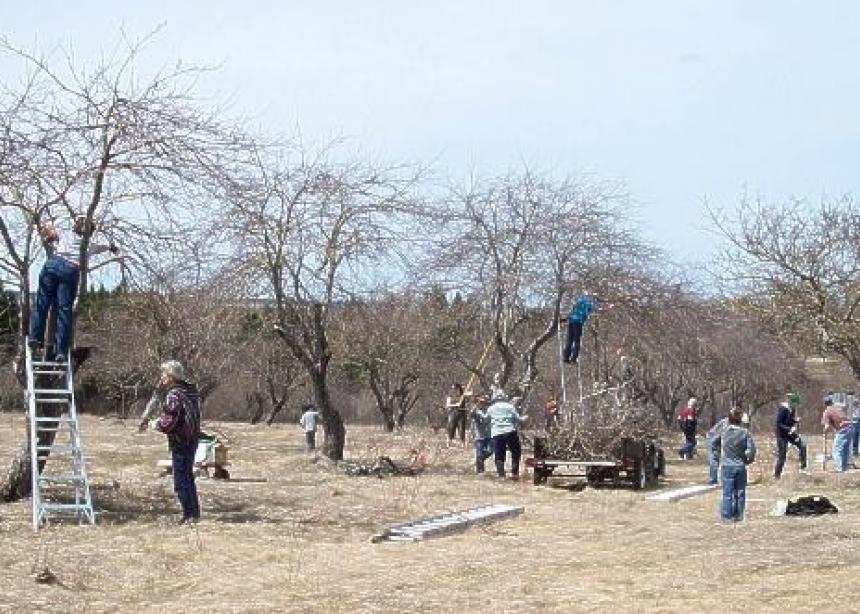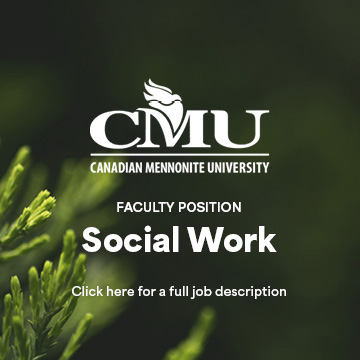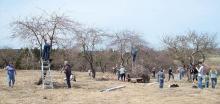When many people think about Canadian Foodgrains Bank growing projects, they imagine huge combines harvesting hundreds of acres of land.
Those kinds of projects exist. But they aren’t the only ways people across Canada can raise funds to help end global hunger. There are lots of smaller fundraising projects, too, like the apple project sponsored by the Petitcodiac (New Brunswick) Mennonite Church.
It all started when Alden Crane, who represents the Foodgrains Bank in that province, made a presentation at the church about ways people could raise money for the organization—things like raising and selling livestock, doing chores, or growing a garden.
One of the people in the audience that day was David Bunnett, a certified organic farmer who, together with his wife, Sandra, raises grass fed beef and free range chickens and turkeys.
Before hearing Crane’s presentation, “I thought you could only do a project for the Foodgrains Bank if you had lots of land,” says Bunnett. “But as I was listening, I thought of our apple trees and it just clicked.”
Those trees are found on land the Bunnetts recently rented to grow hay—not knowing it included 80 apple trees.
Bunnett suggested the idea of growing and selling apples. The church enthusiastically agreed to do it.
“We batted around several ideas, but it was the orchard that caught on,” says pastor Gordon Driedger.
In March the congregation held a pruning day; they’ll get together again in fall to harvest the apples. They plan to sell them in local markets, along with homemade cider and pies, then send the proceeds to the Foodgrains Bank.
While glad to be helping people who are hungry through the Foodgrains Bank, the project is also benefitting the church, Driedger says.
“The day of pruning was an incredible gift for us—everyone could be involved, from older to younger,” he says. “It’s a great congregational project.”
As for Bunnett, he’s glad the apples can be “used to help people who are hungry, and also benefit our church.”
--July 14, 2011





Add new comment
Canadian Mennonite invites comments and encourages constructive discussion about our content. Actual full names (first and last) are required. Comments are moderated and may be edited. They will not appear online until approved and will be posted during business hours. Some comments may be reproduced in print.